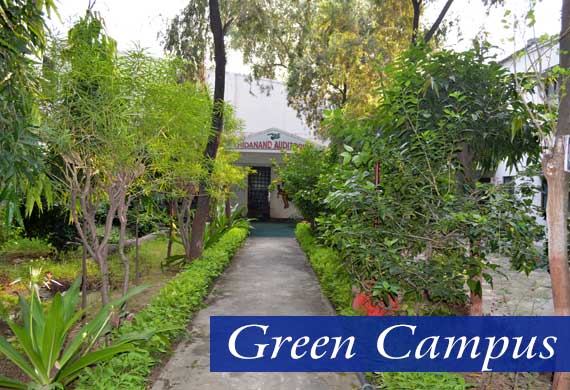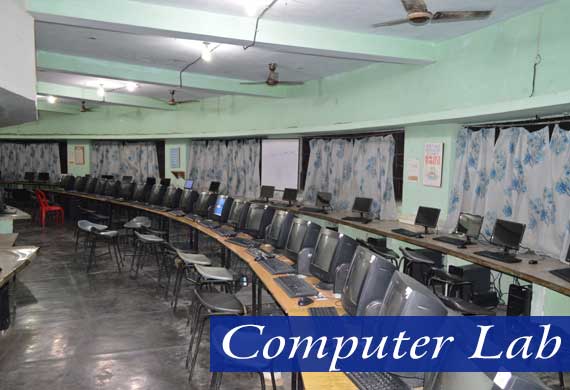FAQ's
BCA (Bachelors of Computer Application) Course Highlights
Here are plenty of reasons to study BCA. There is an utmost need of skilled professionals to serve and solve the various problems in the world of technology and IT in India. Most of the students prefer to study this course because of the following advantages:
- It opens a pool of job opportunities in various fields, especially in the IT sector.
- BCA is almost equivalent to the BTech course. The major benefit of opting for BCA is that it is a 3-year program whereas BTech is a 4-year course.
- A handful of colleges offer BCA specialization as well as in the field of Data Science, Data Analytics, and Computer Science.
- There is an opportunity for students to go for higher studies too like MCA, to add an extra edge and update their skills & experience, which leads to career development.
- Students become proficient in well-used programming languages such as JAVA, C++, Python, CSS, Linux, etc., and enhance your technical skills as well.
- A candidate with a BCA degree is in huge demand since manpower is continuing to get replaced by the systems and the need for good skillful experts and professionals is there to operate and function.
- In terms of salary, BCA graduates can earn from INR 2.4-5 LPA in the starting and after getting industry experience and become proficient in advance technical skills, the salary hike can be around 30-40% and you can earn around INR 3.5-8 LPA after 2-4 years of experience.

Some of the major highlights of BCA (Bachelors of Computer Application) course are given below:
| Name of the Course | BCA (Bachelors of Computer Application) |
|---|---|
| Duration | 3 years |
| Minimum Eligibility | The candidate must have passed 12th with 50% minimum (45% for SC/ST) aggregate with Mathematics/ Computer Science/ Computer Application |
| Admission Process | Merit-based |
| Course Fee (Tuition Fee) | 1.32 Lakhs |
| Scholarship | Candidates belonging to reserved categories and economically weaker sections are eligible for state government scholarship schemes. |
| Internship | Lot of internship opportunities for BCA |
| Career Options |
|
| BCA Recruiting Companies | Google, Facebook, IBM, CISCO, Wipro, Infosys, NIIT, HCL, TCS, Tata Tele Services, Net App, HP, Accenture, Capgemini etc. |
After BCA, the candidate can pursue higher education like MCA, M.Sc Computer Science, M.Sc Data Science, M.Sc Cloud Computing etc. They can also apply for jobs in IT companies for different job roles.
BJMC (Bachelor of Journalism & Mass Communication)
There will be no entrance examination. Admission will be on the on the basis of Merit..
Tution Fee: INR 1.32 Lakhs for complete course
Details & Eligibilty Criteria for BJMC Course
Key Highlights of BJMC
| Course Level | Undergraduate Degree Course |
|---|---|
| Full-Form | Bachelor of Journalism and Mass Communication |
| Duration | 3 years |
| Admission Process | Entrance Test/ Merit Based |
| Minimum Percentage | Minimum of aggregate 50% in 10+2 from recognized board or university. Candidates appearing/appeared for the entrance examination can also apply for admission. |
| Average Course Fee (Tuition Fee) | INR 1.32 Lakhs |
| Career prospects | TV Reporters, News Analyst, Feature Writers, Columnist, Radio Jockey, Media Consultant, Journalist, Marketing Manager, Public Relations Specialist, etc. |
BJMC Top Recruiters
- Zee News
- Times of India
- India Today
- Doordarshan
- Outlook
- The Hindu
- Indian Express
- HT Media
- ABP News
- Jagaran Prakash Group
- Star India
- The Pioneer
- News 18
- NDTV
- Balaji Telefilms
B.Com (Bachelor of Commerce)
Yes, it is possible for a science stream student to pursue a B.Com course. However, there are different B.Com courses. You can pursue a B.Com General course or a B.Com (Hons) course, which can be pursued by an aspirant.
While B.Com General course is open to all aspirants from different academic backgrounds. To pursue a B.Com (Hons) course, colleges require applicants to have studied and cleared Mathematics in the qualifying exam. Therefore, science stream students who chose not to select Mathematics as one of their subjects, may not be able to pursue a B.Com (Hons) course.
The minimum eligibility criteria for any B.Com course in India is to have cleared and qualified the class 12 board examination from a recognised board of education, such as CBSE, ICSE, State Education Boards or equivalent boards.
For the second part of the question, as answered in the previous question, Mathematics is necessary for admissions to only the B.Com (Hons) course in India. While it may not be necessary for other B.Com courses, knowledge and practice of the Mathematics will surely be an advantage for any aspirant.
Yes, it is possible for a science stream student to pursue a B.Com course. However, there are different B.Com courses. You can pursue a B.Com General course or a B.Com (Hons) course, which can be pursued by an aspirant.
While B.Com General course is open to all aspirants from different academic backgrounds. To pursue a B.Com (Hons) course, colleges require applicants to have studied and cleared Mathematics in the qualifying exam. Therefore, science stream students who chose not to select Mathematics as one of their subjects, may not be able to pursue a B.Com (Hons) course.
If you are interested in pursuing the course, then check out this list of specialisations opted by B.Com aspirants in India.
- Accounting and Finance
- Banking and Finance
- Business Economics
- Corporate Accountancy
- e-Commerce
- Financial Markets
- Human Resource Management
- Marketing and Advertising
- Statistics
- Taxation
- International Accounting
One truly cannot answer the question, as it depends on what you, as an aspiring undergraduate student, wish to pursue from the perspective of your career. In other words, while, both the degrees may seem to be similar, the course entails a different career prospect for graduates.
If you are interested in pursuing the course, then check out this list of specialisations opted by B.Com aspirants in India.
- If you are interested in commerce, statistics, mathematical analysis of a business or organisation, finance, etc, then B.Com may be the course of choice for you. However, if you are interested in pursuing a managerial career, then you may choose to pursue BBA as the course for your undergraduate degree.
- If you are interested in both, then check out the answer in the next question.
Yes, pursuing an MBA degree after graduating from one of the B.Com courses in India is possible. However, many MBA Colleges in India take admissions to the course based on the scores obtained in one of the MBA entrance exams, viz. CAT, CMAT, MAT, XAT, NMAT, ATMA, etc.
This education route is the best possible combination for those who wish to pursue a career in management and are interested in commerce as well. With their expertise in commerce and management, graduates with a B.Com and MBA degree become prime candidates for recruiters who require specialists with knowledge and experience in the field.
On the other hand, B.Com as a course trains and produces qualified commerce graduates, capable of carrying day-to-day processes of commerce and banking. Under B.Com course, students are provided with a briefly detailed academic training of the different commerce subjects and fields. This subsequently trains them in all branches of commerce and banking.
Over the years, it has been a trend to see CA aspirants pursue B.Com while also attempting to clear CA exams as well. In India, it is also possible to pursue CA or Chartered Accountancy after completing your B.Com course as well. Those who do have a valid bachelor’s or master’s degree will be able to get direct entry to CA.
After completing your B.Com, a host of higher education programme will be open for you, especially in the field of commerce, management and law. For those interested in expanding their career options, looking into postgraduate courses in management and law are the areas to delve deeper into.
For instance, pursue an MBA after completing your B.Com will help you land managerial positions in different sectors, meanwhile, pursuing LLB after B.Com will help you pursue a career path as a Corporate Lawyer. Meanwhile, if you choose to pursue an M.Com after your B.Com, a set of new career options lie wide open for you, especially in the field of research and education. As after graduating from an M.Com degree, students will be able to attempt UGC NET, which qualifies them for Junior Research Fellowship or work as a professor or assistant professor in one of the commerce colleges in the country.
There are a host of job profiles that are available to the B.Com graduates in India, which include the following B.Com job options:
- Financial Risk Manager
- Government Jobs such as Civil Services, Indian Economical Service, Indian Statistic Service, Govt Banking Jobs, BPOs, etc.
- Business Analyst
- Digital Marketer
B.Com or Bachelor of Commerce as a course is aimed at trained students to professionally and skillfully handle all different matters of commerce and banking. Therefore, if you have aspired to build a career in the field of finance and banking or wish to learn more about the commerce sector in general, then pursuing a B.Com or B.Com (Hons) course will be the perfect choice for you.
BBA Frequently Asked Questions
Students and parents tend to have many concerns and questions when it comes to BBA. Here we are answering the frequently asked questions about BBA which will help you make better decisions while enrolling for the business program.
Yes, this 3-year course can be pursued without a math subject. After the completion of BBA, you may go for Masters or PG Diploma programs.
There are many opportunities available for BBA graduates who wish to pursue government jobs. Candidates can apply for the IPS and IAS job posts after clearing BBA. More opportunities include in banking sector, police-sub inspector, defence service and more.
BBA course makes you a graduate with an industrial-relevant degree and exposure. On the other hand, the B.Com course is a traditional course which allows students to study subjects such as Accountancy.
These are some of the most preferred and futuristic BBA specializations offered by the best BBA colleges in India.
- BBA in Marketing
- BBA in Banking and Financial services
- BBA in International Business
- BBA in Digital Business and Marketing
- BBA in Mass Media Management
Yes, a student can do an MBA after BBA. For those who want to pursue higher studies, an MBA is a perfect choice.
Yes, you can give the UPSC exam after BBA. However, you should be of 21 years of age, and must have a bachelor’s degree in any subject from a recognized university.
Our Highlights














